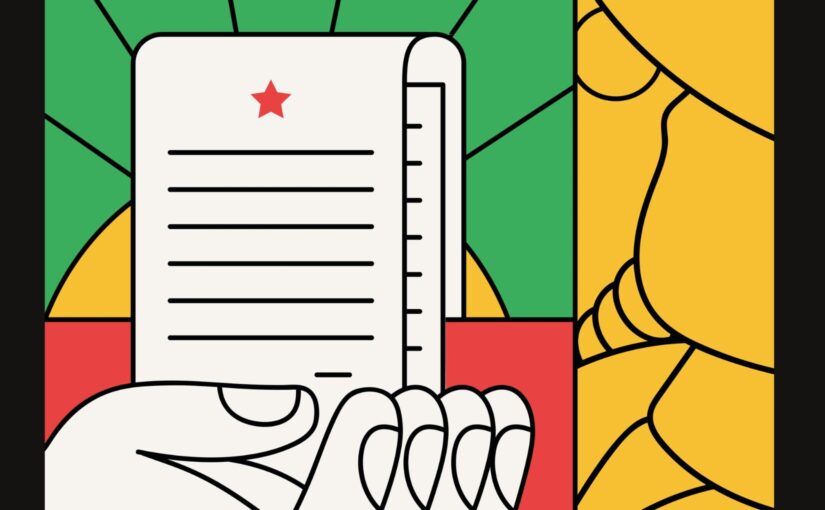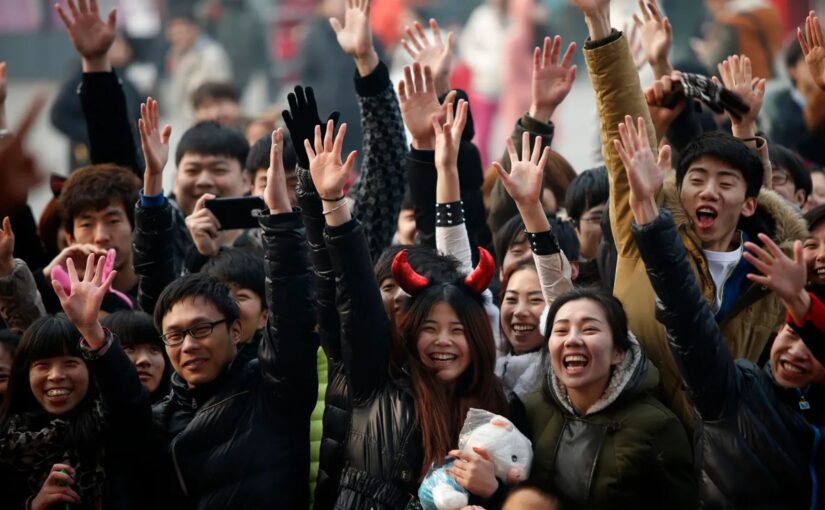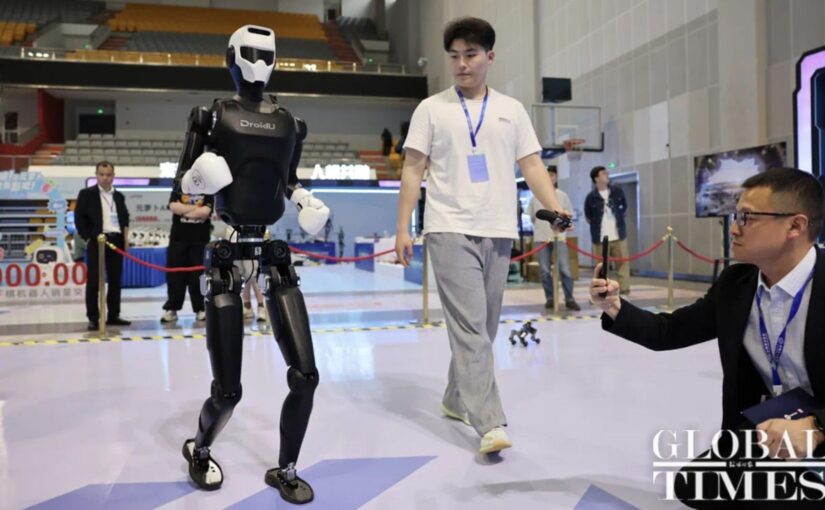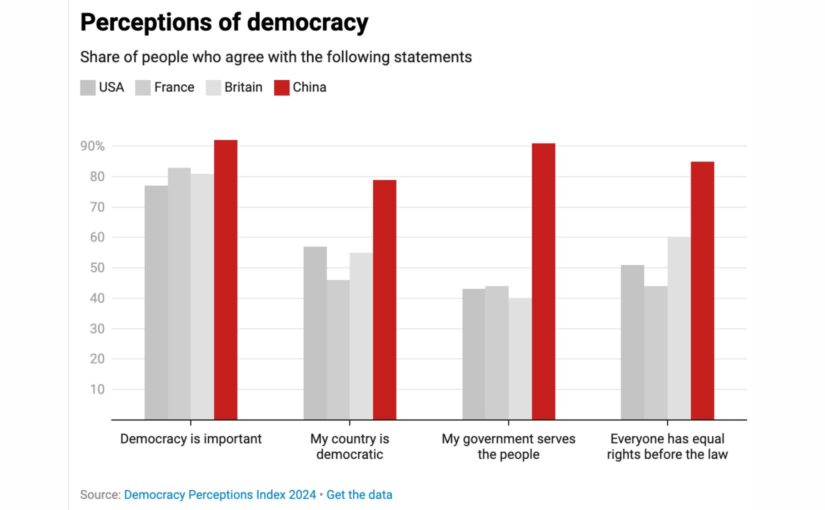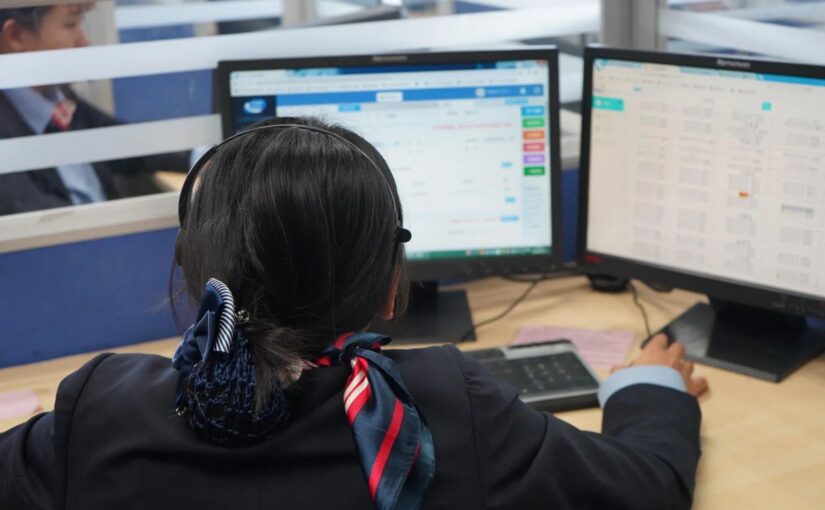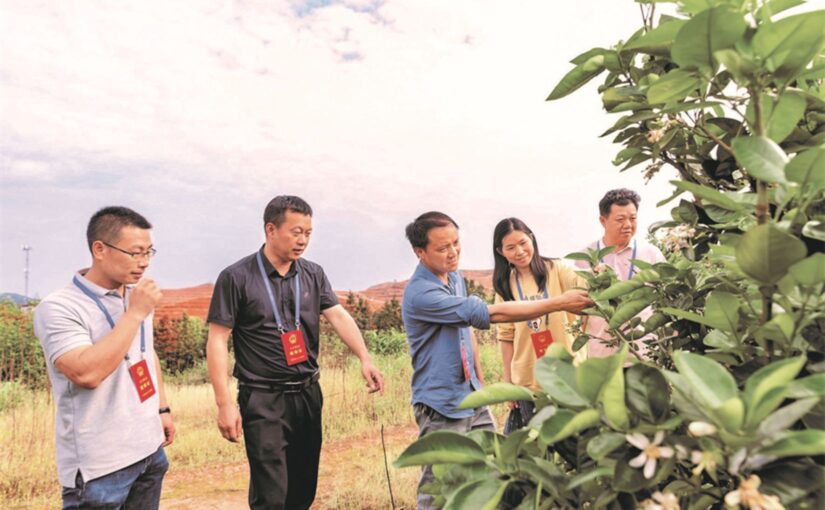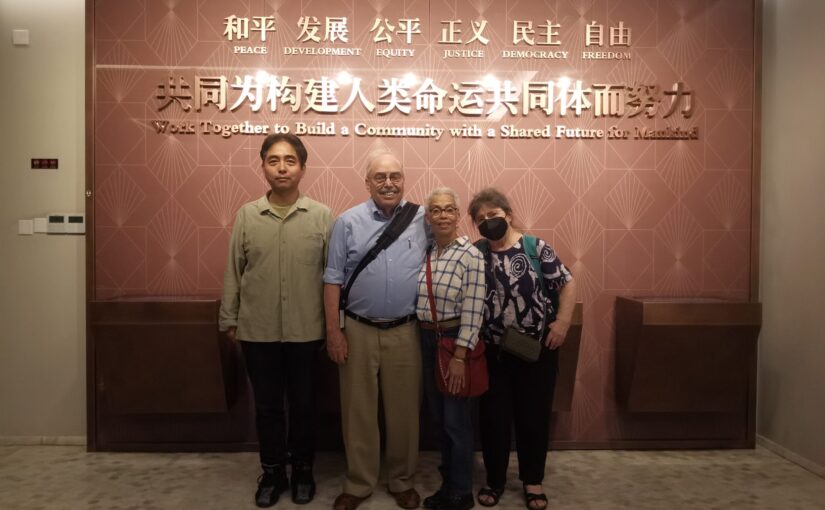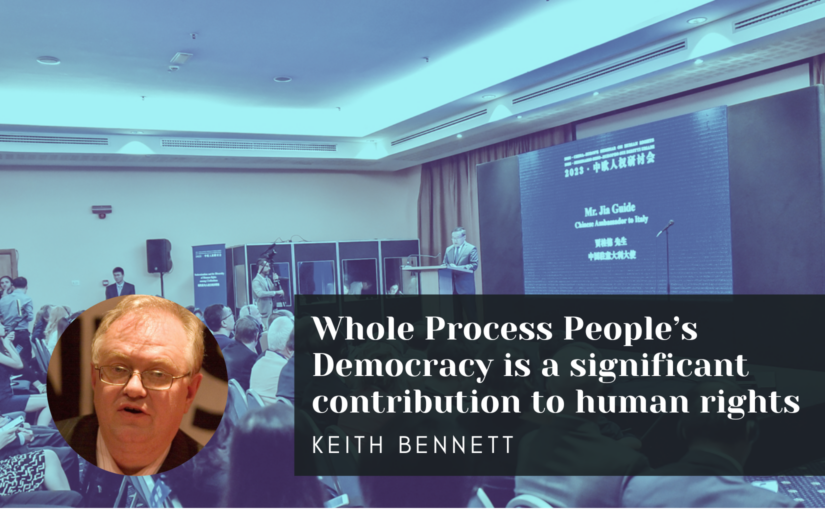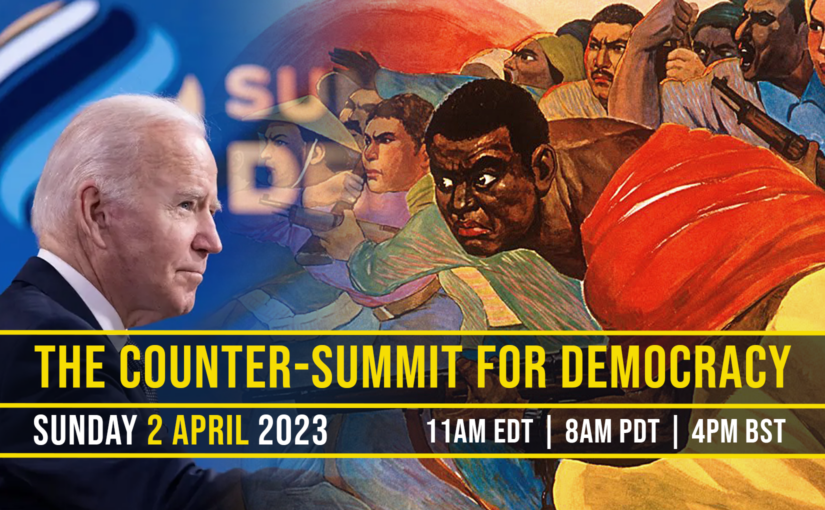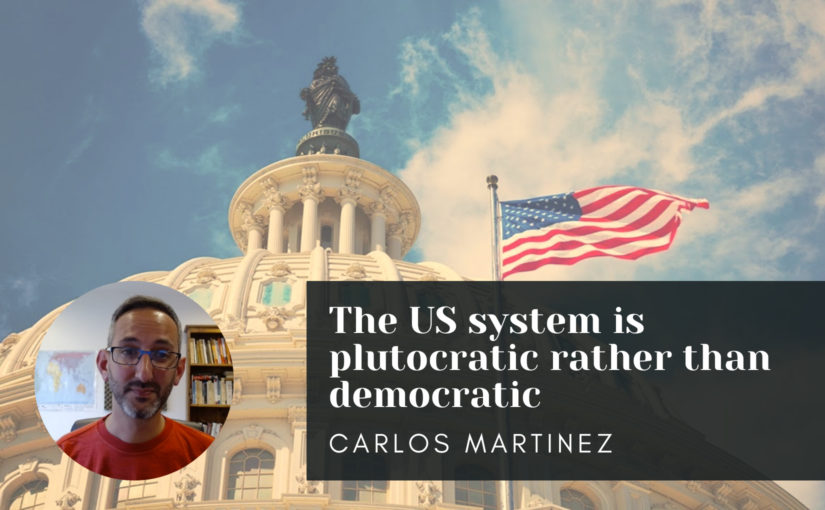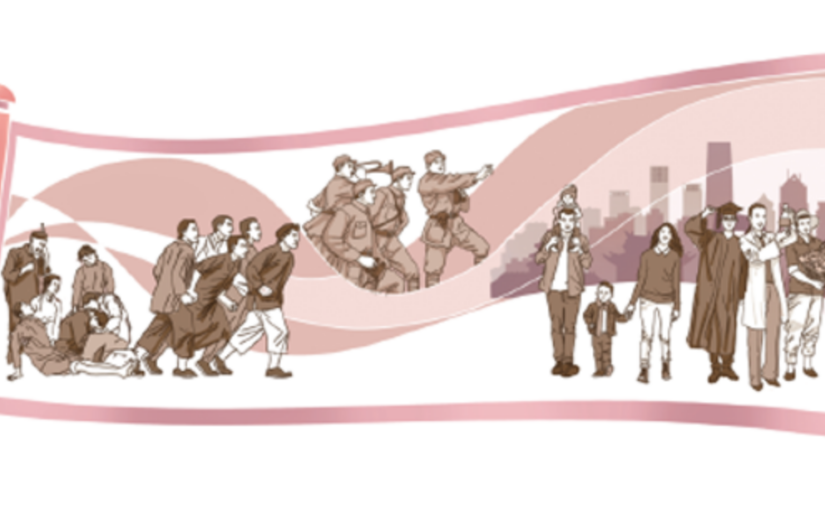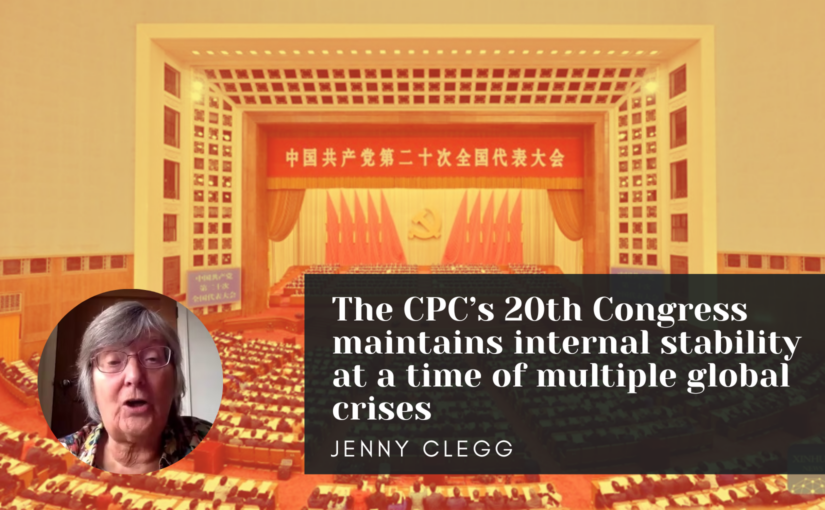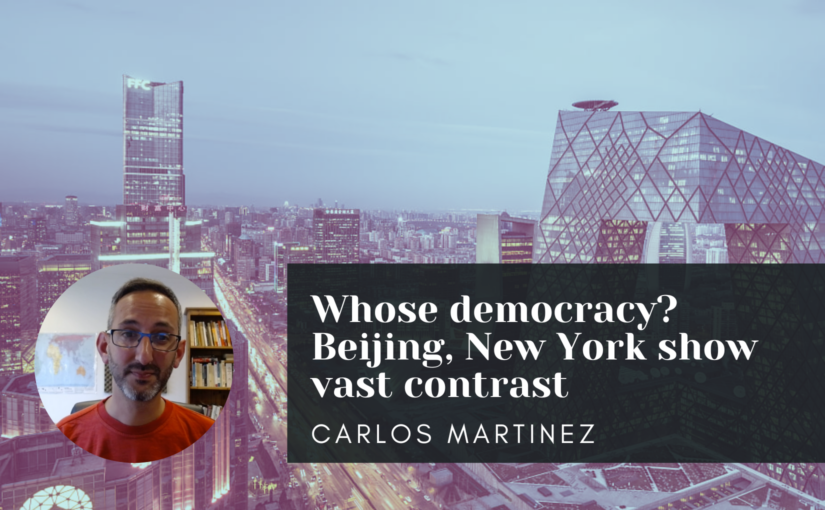In the following detailed and highly informative article, originally published on Progressive International, Paweł Wargan and Jason Hickel use the regeneration of Minzhu Village in Chongqing as a vivid case study of China’s system of whole-process people’s democracy.
Formerly the site of one of China’s most important enterprises – the Chongqing Construction Machine Tool Factory – Minzhu Village began to decline after the factory was relocated in 2009.
Its infrastructure decayed and its population aged and dwindled. Officials considered demolishing the village and relocating its residents. But the community had generational bonds to the area, which itself held historic significance for the country. Instead of demolition, the village underwent a comprehensive program of regeneration. It became a model for the rest of the country — and provided a striking example of participatory processes in China’s development.
Minzhu was revived not through displacement but via a thoroughgoing democratic process involving hundreds of “courtyard meetings”, a digitised mailbox collecting thousands of suggestions, and surveys at multiple levels. The results – “the farmers’ market was modernised, the stream was cleaned up, the canteen was built, and new institutions and infrastructures for leisure, recreation, and community development were constructed around the village” – shine a light on how socialist democracy can bring about people-centred redevelopment, a far cry from the gentrification typically associated with urban redevelopment in the capitalist world.
This participatory method flows from the mass line, with the political leadership at all levels “continuously interpreting, systematising, and realising the ideas of the people”. The authors contrast this with capitalist democracy, a system which allows “the dominant class — the class with the most financial and organisational power — to determine political outcomes in its own interests, capture the state, and prevent any democratic challenges to its rule”.
In the US, for instance, power is passed back and forth between two establishment parties, both of which are explicitly pro-capitalist and committed to the interests of the capitalist class. Third parties — including socialist parties — are effectively frozen out of the national political process; they face serious obstacles when it comes to getting on ballots and securing airtime in official political debates.
By comparison, socialist democracy extends participation beyond ballots into production and planning. “Socialist democracy must be seen as a historic, multi-generational and dialectical process by which conditions that enable increasing parts of society to play an active role in governance are created, nurtured, and defended.”
The article provides an overview of China’s democratic processes, including electoral and consultative mechanisms across five administrative levels, with the CPC – a party with over 100 million members – functioning as a mass organisation practicing democratic centralism. Continuous, extensive consultation and participation are crucial ingredients of the decision-making and lawmaking systems. As Xi Jinping puts it, democracy means extensive deliberation across society; it is not a system where “people are awakened only at voting time and dormant afterward.”
The authors note that survey data consistently shows high public trust and satisfaction with Chinese governance, challenging Western assumptions that China’s legitimacy rests on coercion. They acknowledge debates over the extent of economic democracy, but argue that public control of the “commanding heights” enables planning toward collectively ratified goals.
Ultimately, Minzhu Village exemplifies a model that binds legitimacy to outcomes – poverty eradication, rising wages and life expectancy – rather than to the “periodic and highly ritualised” procedures of so-called liberal democracy. As Victor Gao quips, it is hard to imagine China’s transformation from poverty and backwardness occurring “without democracy… without the Chinese people actively participating in the decision-making process.”
The article concludes that the implications of China’s ongoing experimentation with whole-process people’s democracy extend beyond China’s borders:
In an era when Western liberal democracies face mounting crises of legitimacy — declining voter participation, growing inequality, institutional dysfunction, rising popular alienation from political processes, and the discarding of liberal democratic norms by states increasingly embroiled in wars of imperial expansion — the Chinese model offers alternative ways of conceptualising the relationship between popular sovereignty and effective governance. It suggests that democracy’s ultimate test lies not in conformity to particular institutional arrangements developed in specific historical contexts, but in its capacity to activate the people in shaping the conditions of their lives and societies. Understanding “whole-process people’s democracy” therefore requires moving beyond the constraints imposed by liberal ideology to engage seriously with socialist approaches to political organisation, which offer critical insights for all societies grappling with questions of development and popular sovereignty in the twenty-first century.
Introduction
In Minzhu Village, a small community in the Jiulongpo District of the sprawling metropolis of Chongqing, a remarkable transformation has taken place. Once a maze of crumbling buildings and narrow, muddy roads, Minzhu Village is now a modern community with radiant red-brick walls, landscaped paths, and thriving public services. It has a sustainable farmers’ market built with recycled materials, a public canteen that provides free meals for the elderly, fitness parks, stages for public performances, modern and affordable cafes, and a craft-beer bar housed in stacked shipping containers. On the main square, across from the three-story canteen, the Communist Party of China (CPC) operates a sleek public office, where residents can seek the support of Party cadres on anything from repainting their homes to resolving neighbourly disputes. Just a few years ago, sewage ran through a canal down the length of the main thoroughfare. Children and the elderly now dip their feet in the stream that has taken its place.
Continue reading Building whole-process people’s democracy in China